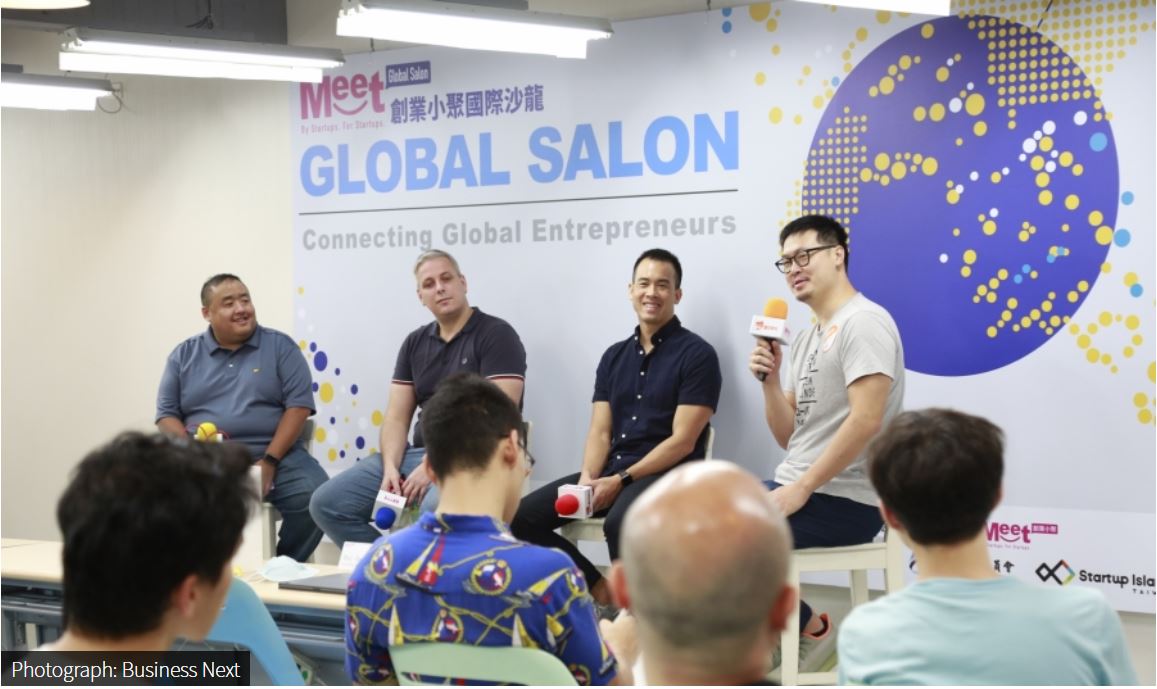How tech startups compete with Goliaths and win

Editor’s note: This article is written partially based on a fireside chat with three entrepreneurs, investors, and industry experts; they’ve given a speech about their startup experience at an event that Meet organized with the goal of internationalizing Taiwan’s startup ecosystem.
In 2007, when Jameson Hsu turned down Google’s offer to buy his startup for $10 million, he was expecting the tech giant to raise the price to $55 million, but it didn’t.
Instead, “they told us ‘we’re going to build what you’re building,’” Hsu recalls. “It was quite naive of us...it was just two of us (co-founder Bob Ippolito and himself) and the company clearly isn’t worth that much.”

Three years later, Hsu and Ippolito agreed to sell Mochi Media, a Flash-based games platform, to Shanda Games, one of the largest operators of online games in China, for $80 million.
With Google’s offer, Mochi Media has raised $14 million over two venture rounds in the Bay Area prior to the acquisition in 2010. Hsu believes the tech giant’s early interest in his startup shows a “good sign” that they’re going in the right direction.
As for the risk of turning Google into a potential competitor, he says he wasn’t concerned. “Big companies do a lot of things, but they don’t do a lot of them well,” he explains.
All the same, investors can hesitate to bet on startups that compete with big tech firms, especially the Big Five.
For that reason, Phil Chen, a general partner of Race Capital, says it didn’t seem smart to him to invest in Zoom back in 2016 -- but the video conferencing company has just reported a $169% YoY growth due to the shift to remote work.

“When I was in Horizons [Ventures], we were once investing in three companies at a time,” Chen says; they are Impossible Foods, Modern Meadow, and Zoom.
While the first two are ahead of their time, what Zoom offers is a similar service that Google and Microsoft have also been developing. The company tried to convince his team that it has the potential to grow much faster, but Chen says he remained dubious.
However, looking back, he says he knows how they made it, despite working on a “boring” product: “Even though Google and Microsoft have similar services, they are also focusing on other sexy things like AI.”
Indeed, having limited resources often put startups in a less favorable position than big companies, but it allows them to focus on the success of a single product.
“As a startup, you don’t have a lot of money and resources to work on many different products,” says John Chen, the founder and managing partner of Hive ventures. “You have to focus on your core strength.”
Having said that, he admits it's certainly not easy. In a startup he worked for, he has once run four different product lines due to customer requests. “Customers always have a lot of suggestions like whether you should build this feature or not,” Chen says; “but customization kills scalability.”
To be clear, unlike customization, he believes standardization is necessary in product development, and to standardize a good enough product -- to replicate and sell it in global markets -- it’s still crucial to talk to users and learn from their feedback.
One of the best examples of “a startup that focuses” is Armorize Technologies, the cybersecurity company from which Jordon Forssman exited in 2013. With the founder Wayne Huang, he dived into another startup journey in 2018 and is now the chief of product at XREX.

Forssman says Armorize has gained market leadership in the anti-spam technology space that Microsoft and Google have been working on for years but gradually losing interest in. Like how Phil Chen describes Zoom’s service, he calls this area “boring” to many businesses.
Nonetheless, at the time "when people are getting malware in pdf documents and malicious URLs, nobody has the answer to that except Armorize,” Forssman claims. “Microsoft tried to get in too late with bad technology and it couldn’t do it right.”
In fact, it takes eight years for Armorize to focus on its core technology before the $25 million acquisition. “Sometimes, things that are not sexy are worth a lot of money because everyone has moved on,” Forssman says.
To out-compete tech Goliaths, for one thing, startups need to identify what they are best at. “Being number one in that thing is better than being number two in multiple things,” John Chen explains. For another, what’s more difficult but equally important is to persevere.
〔Original :Meet Startup @ TW〕
https://meet.bnext.com.tw/intl/articles/view/46633